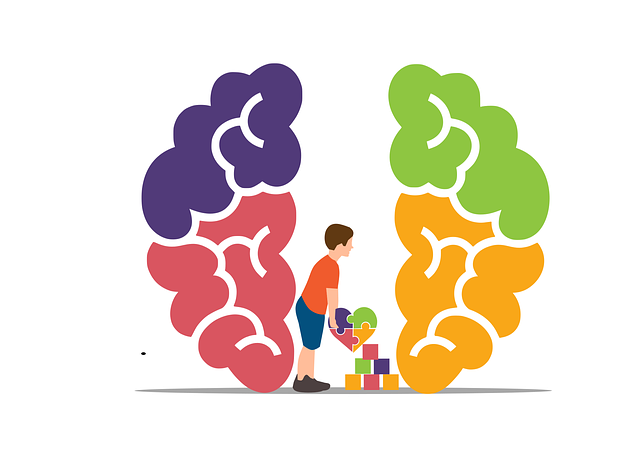Longmont Family Counseling Therapy tackles the complexity of mental illness diagnosis by offering Trauma Support Services, Empathy Building Strategies, and Mental Wellness Podcast Series. They emphasize comprehensive Mental Health Education, open dialogue, stress management, and structured coaching to enhance accuracy. Accurate diagnoses are vital for effective treatment, preventing adverse outcomes like ineffective care, increased risk, and higher costs. Longmont's approach includes public campaigns and Mind Over Matter coaching, aiming to improve patient outcomes, reduce stigma, and strengthen support networks through education and proactive measures.
Mental illness diagnosis accuracy is a critical aspect of patient care, yet it faces significant challenges. This article explores strategies to enhance reliability in diagnosis, focusing on the efforts of Longmont Family Counseling Therapy. We delve into understanding the complexities, presenting common hurdles and examining innovative approaches used by mental health professionals. By improving diagnostic accuracy, healthcare providers can significantly impact patient outcomes and strengthen support systems, ultimately fostering better mental well-being within communities.
- Understanding the Challenges of Mental Illness Diagnosis Accuracy
- Strategies for Enhancing Diagnostic Reliability at Longmont Family Counseling Therapy
- The Impact of Improved Diagnosis on Patient Outcomes and Support Systems
Understanding the Challenges of Mental Illness Diagnosis Accuracy

Diagnosing mental illness accurately is a complex task due to the multifaceted nature of human behavior and emotions. Many factors contribute to this challenge. Mental health conditions often present with similar symptoms, making differentiation difficult. Cultural differences and individual experiences play significant roles in how individuals express and perceive their emotional states, potentially leading to misdiagnosis or delayed treatment. The lack of standardized assessment tools across healthcare providers further complicates the process.
Longmont Family Counseling Therapy recognizes these challenges and strives to enhance diagnosis accuracy through various means, including Trauma Support Services that address underlying trauma often associated with mental health disorders. They also emphasize Empathy Building Strategies to foster deeper understanding and communication between counselors and clients. Additionally, their Mental Wellness Podcast Series Production offers valuable resources and insights into different mental health topics, aiming to raise awareness and promote early intervention.
Strategies for Enhancing Diagnostic Reliability at Longmont Family Counseling Therapy

Longmont Family Counseling Therapy has implemented several strategies to enhance the reliability and accuracy of mental illness diagnoses. One key approach involves integrating comprehensive Mental Health Education Programs Design, ensuring clients and their families gain a deep understanding of various mental health conditions. These programs not only educate but also encourage open dialogue, helping counselors identify symptoms more effectively.
Additionally, Longmont Family Counseling Therapy places a strong emphasis on stress management techniques as part of its diagnostic process. By teaching clients and caregivers practical stress mitigation strategies, counselors can better assess the impact of stress on mental health. This holistic approach, combined with well-structured mental wellness coaching programs, contributes to more precise diagnoses and personalized treatment plans.
The Impact of Improved Diagnosis on Patient Outcomes and Support Systems

Accurate mental illness diagnoses are pivotal for positive patient outcomes and robust support systems. When diagnoses are off, individuals may receive ineffective treatments or none at all, exacerbating their symptoms and hindering their ability to function in daily life. This can lead to prolonged struggles, increased risk of suicide, and higher healthcare costs. Moreover, inaccurate diagnoses can erode trust between patients and mental health professionals, making it difficult for people to seek help in the future.
Longmont Family Counseling Therapy recognizes the profound impact of precise diagnosis. Through initiatives like public awareness campaigns development and mental wellness coaching programs, they strive to educate both individuals and communities about the signs and symptoms of various mental health conditions. By fostering a better understanding of mental wellness using Mind Over Matter principles, Longmont Family Counseling Therapy aims to reduce stigma and encourage early intervention. This proactive approach promises improved diagnosis accuracy, leading to better patient outcomes and stronger support networks for those navigating mental illness.
Mental illness diagnosis accuracy is a complex issue, but with strategies like those employed by Longmont Family Counseling Therapy, significant improvements can be made. By focusing on understanding challenges and implementing reliable diagnostic methods, healthcare professionals can ensure more accurate diagnoses, leading to better patient outcomes and enhanced support systems. This, in turn, fosters a healthier and more supportive community for those navigating mental health issues.














